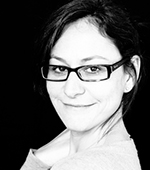By Marianne Abib-Pech
If you ask me to name the top three companies I would put on my wall of fame when it comes to innovation and energy, Connecticut-based conglomerate General Electric would definitely be one of them.
Jack Welch, GE’s CEO from 1981 to 2001, would say “keep them engaged, keep them moving, never let them rest’’. That is the only way to build a high-performance culture. The same philosophy translated into the state-of-the-art in-house graduate management programs that GE is rightly famous for.
But how can you possibly achieve something like this in a much smaller organisation? Easy answer: GRADUATES. Commit to hire a certain number of graduates every year and you will most definitely inject energy, disruption and innovation into your organisation.
Why?
Young graduates – the so-called millenials – are plugged into the reality of today’s world. They are the future consumers and know both what they want and how this audience thinks.
As they are new to the workforce and don’t have a strong framework of reference, they can force your organisation to snap out of any possible sense of complacency. Through their questions, they will help you to re-assess why you are doing things the way you do. This can in turn lead to a fresh perspective and result in innovation and improvements. Remember the Emperor’s new clothes tale? Sight becomes insight, which, in turn, prompts action.
So how do you go about finding a young graduate as a growing business?
Do your homework. Like any business plan, data-gathering is essential. Invest time and put together a list of relevant universities and courses that dovetail with your requirements. Do not hesitate to go global by recruiting young graduates from emerging economies.
The list can be from an industry perspective or it can address your most pressing business challenges. If you are, say, a software-as-a-service (SAAS) company, then programmers, web designers or marketeers could be a good start.
You could also decide to be more edgy and look for people who are not a natural fit. Why? Because they will have a different take on what you are planning to do. Going back to our SAAS example, a finance graduate could help you challenge your pricing structure, while a fine art graduate could help you to develop visually strong ideas.
As a growing business, when you are recruiting graduates, remember that you are up against bigger and better-known players. So it’s important to differentiate yourself from the competition as well as to understand what makes this generation tick. And the current crop of graduates display some specific characteristics:
- Millenials love diversity: Make sure that every graduate spends time in different parts of the organisation. This doesn’t just mean different roles in the same function (from financial planning to controllership for finance), but also from one function to another (marketing department to the sales team).
- Millenials crave attention and role models. Promote the fact that every graduate will be mentored by a senior executive. In this way you will gain commitment, but you’ll also benefit from picking their brains every week or so. Consider this as a mentoring/reverse mentoring session. To further increase their value, consider bringing them to executive meetings and introducing them to customers.
- Millenials want to develop their own things. So take a leaf out of Google’s book and let every graduate have the opportunity to work on his or her own personal project (this could either be something relevant to your business or even something quite different). But what you’re looking for is ‘outsourced innovation’ or even an angel investing opportunity. Even if nothing comes of this, you will gain invaluable insights on how millenials see and analyse problems. And who knows, it may even lead to a sustainable new business idea or model.
 Marianne Abib-Pech started her career in Arthur Andersen, before joining General Electric Europe and finally becoming global CFO of one of the business unit of a Shell International Petroleum at the age of 35. A few years ago she moved to Hong-Kong, wrote a book for the FT and created Lead the Future, a leadership consulting and financial advising firm. She also sits on the board of several start-ups and investment funds and is an active angel investor.
Marianne Abib-Pech started her career in Arthur Andersen, before joining General Electric Europe and finally becoming global CFO of one of the business unit of a Shell International Petroleum at the age of 35. A few years ago she moved to Hong-Kong, wrote a book for the FT and created Lead the Future, a leadership consulting and financial advising firm. She also sits on the board of several start-ups and investment funds and is an active angel investor.